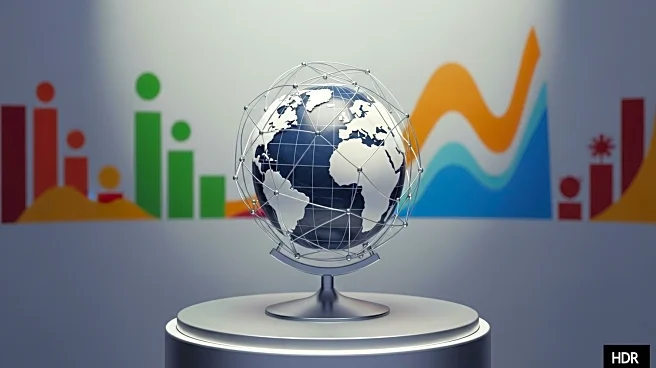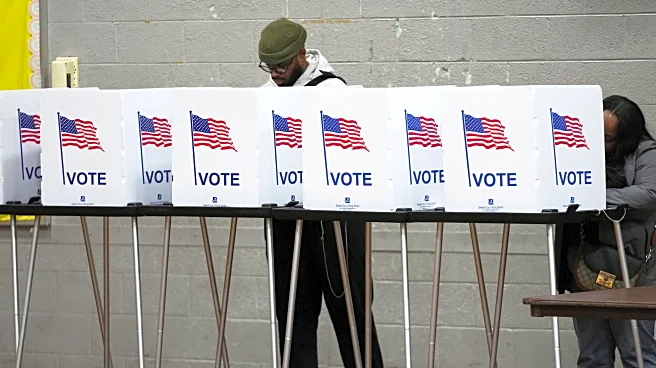What's Happening?
During the Shanghai Cooperation Organization summit in Tianjin, China, Indian Prime Minister Narendra Modi, Russian President Vladimir Putin, and Chinese President Xi Jinping were seen engaging in a friendly exchange, highlighting the growing camaraderie among these leaders. The summit, originally established as a counterbalance to U.S. influence in Central Asia, has expanded its reach and significance over the years. President Xi emphasized the need to move away from Cold War-era thinking and rival power blocs, advocating for a world order centered around multiple power centers and a balanced global governance system. This gathering underscores China's increasing role in reshaping international alliances and challenging U.S. global leadership.
Why It's Important?
The summit signifies a potential shift in global power dynamics, with China, Russia, and India forming closer ties that could undermine U.S. influence. As these nations collaborate, they may create a formidable bloc that challenges existing geopolitical structures. This development could impact U.S. foreign policy, trade relations, and strategic alliances, particularly in regions where the U.S. has traditionally held sway. The emphasis on a multipolar world order suggests a move towards more diverse and potentially competitive international relations, affecting global stability and economic interactions.
What's Next?
The strengthening of ties between China, Russia, and India may lead to further collaborative efforts in areas such as security, trade, and technology. This could result in new policies and agreements that exclude or counter U.S. interests. The U.S. may need to reassess its foreign policy strategies to address this emerging alliance and consider diplomatic or economic measures to maintain its influence. Additionally, other countries may be prompted to choose sides or seek new partnerships, potentially leading to a realignment of global alliances.
Beyond the Headlines
The summit's implications extend beyond immediate geopolitical shifts, potentially influencing cultural and economic exchanges among participating countries. The emphasis on rejecting Cold War thinking may encourage a broader acceptance of diverse governance models and economic systems. This could lead to increased cultural diplomacy and shared technological advancements, fostering a more interconnected global community. However, it also raises questions about the balance of power and the potential for conflicts arising from differing ideologies and interests.










